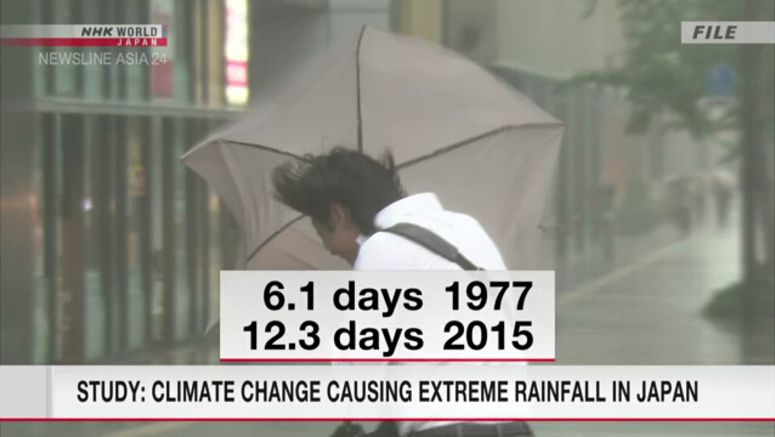Study: Frequent 'anomalous' Rainfall In Japan Caused By Climate Change

Scientists say studies using artificial intelligence have shown that abnormal rainfall is occurring more frequently in Japan, mainly due to human-induced climate change.
The study was led by Murakami Hiroyuki, who belongs to the Geophysical Fluid Dynamics Laboratory at the US National Oceanic and Atmospheric Administration.
His team applied a deep-learning technique to have an AI study Japan's precipitation data over the 38 years from 1977 to 2015.
Cases in which rain fell in abnormally large volumes or in unusual areas were identified as "anomalous precipitation events."
The study showed that the frequency of such events across Japan more than doubled, to 12.3 days in 2015 compared to 6.1 in 1977.
In the western Japanese regions of Chugoku, Shikoku, Kyushu, Amami and Okinawa, the figure nearly tripled from 2.7 days to 7.3.
The team also used a supercomputer to simulate atmospheric conditions, changes in seawater temperatures, including the El Nino phenomenon, and other natural variabilities.
It says the results showed that the increased frequency of abnormal rainfall is attributable to climate change induced by human activity.
The team also says the rare events are projected to further increase across Japan, to about 19 days in 2050. That would be about three times the level in 1977.
Murakami warns that areas across Japan could experience more heavy rainfall of a kind that they have never seen before. He says the nation needs to prepare for disasters without being bound by past experience.